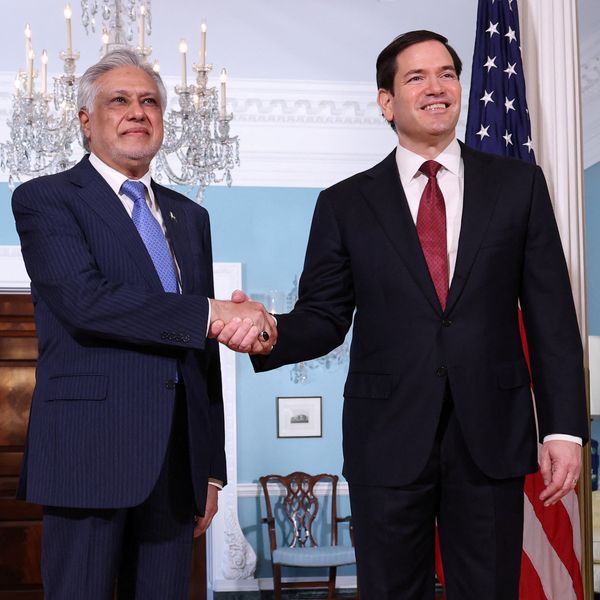Iran edges toward US deal under rising internal and external pressure
Khamenei's shift on US talks reflects deep internal pressure and fear of a devastating war, says Kamran Khan
News Desk
The News Desk provides timely and factual coverage of national and international events, with an emphasis on accuracy and clarity.
Iran’s Supreme Leader Ayatollah Ali Khamenei, long a fierce opponent of any dialogue with Washington, is now showing unprecedented willingness to engage in nuclear negotiations, signaling a dramatic shift driven by mounting internal pressures and the looming threat of military conflict.
Two rounds of indirect talks between Iran and the United States have already been held—first in Oman and later in Rome. Both were mediated by Omani officials, with delegations from both sides housed in separate rooms. A third round is expected in Oman later this week.
The breakthrough comes on the heels of a stern letter from U.S. President Donald Trump, reportedly sent in March, warning Khamenei of severe consequences if negotiations did not begin within two months. Trump’s message reportedly included a veiled threat of military action, a move that appears to have galvanized Iran’s political and military elite.
According to Iranian insiders, a high-level meeting of the Islamic Republic’s leadership—including President Masoud Pezeshkian, judiciary chief Gholam Hossein Mohseni, and army chief Gen. Mohammad Bagheri—persuaded Khamenei to authorize talks.
The group allegedly warned him that without negotiations, Tehran risked losing its grip on power amid growing public unrest, economic collapse, and the possibility of direct attacks on nuclear sites at Natanz and Fordow.
Khamenei’s prior dismissal of any engagement with Washington as “idiotic” has long been a pillar of his foreign policy stance. That posture now appears to be cracking under the weight of economic sanctions, international isolation, and rising public discontent.
White House envoy Steve Witkoff posted on X last week that any deal would require Iran to cease all uranium enrichment and dismantle its weaponization efforts. “There will be no leniency,” he wrote.
Meanwhile, Saudi Arabia’s defense minister, Prince Khalid bin Salman, made a rare and unannounced visit to Tehran earlier this month, meeting with top Iranian leaders. Observers say the visit signals Riyadh’s efforts to recalibrate its regional strategy amid fears of escalating conflict.
In another regional twist, Iran dispatched its foreign minister to Moscow with a letter for Russian President Vladimir Putin. Analysts believe the Kremlin has quietly aligned more closely with Trump’s hardline stance, adding further pressure on Tehran to make concessions.
The strategic shift follows years of attrition. Iran has lost key allies and military commanders, including Gen. Qassem Soleimani and nuclear scientist Mohsen Fakhrizadeh. Proxy forces like Hezbollah and Hamas have been severely weakened, and U.S. airstrikes continue to target Iranian interests in Yemen.
Domestically, inflation and unemployment have fueled protests. Iran’s currency, under pressure for years, recently rebounded 20% against the dollar—sparking hopes of sanctions relief if a U.S. deal materializes.
Even Khamenei has tempered expectations, saying Tehran is “neither overly hopeful nor pessimistic” about negotiations.
Despite efforts to build ties with Beijing, Moscow, and New Delhi, analysts say Iran understands that re-entry into the global financial system requires engagement with Washington.











Comments
See what people are discussing